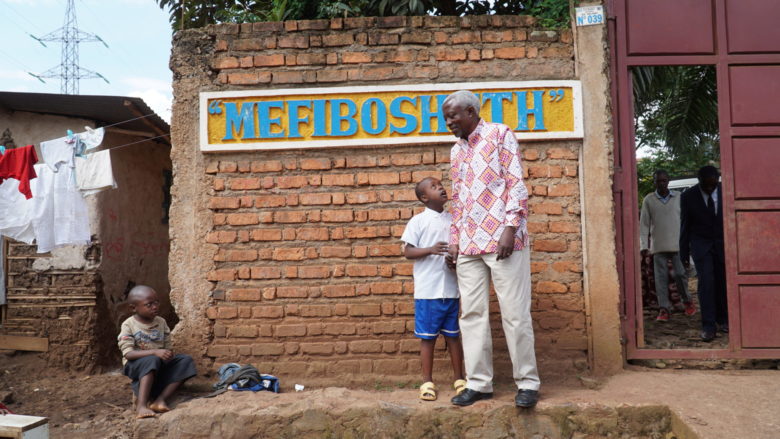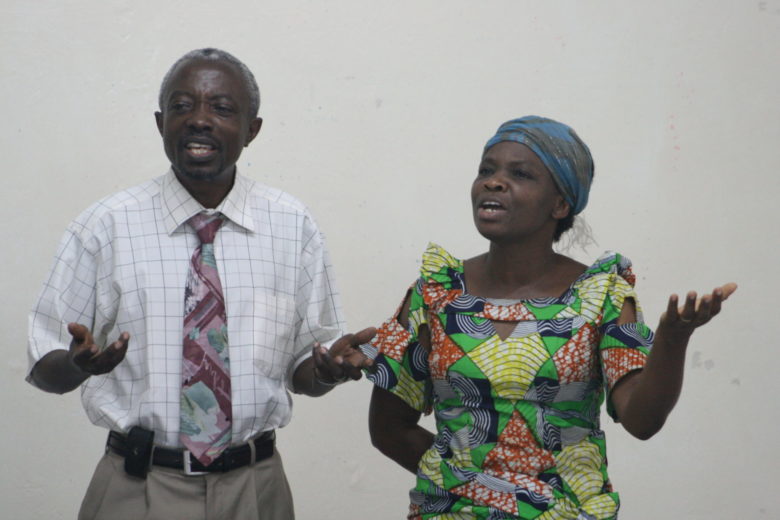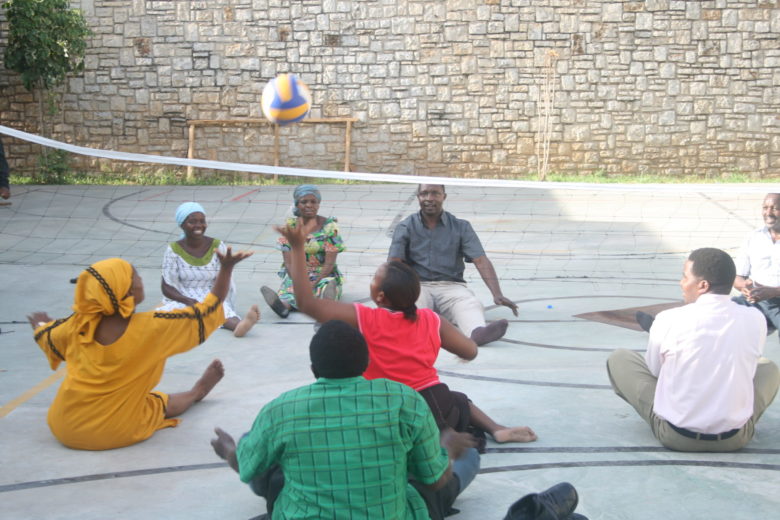No Longer Cursed

In the Democratic Republic of Congo, it has traditionally been thought that a disability is due to a curse. Now even a disabled child is accepted as a gift. Read about how attitudes have changed.
In the city of Bukavu, it was thought that if a pregnant woman sees a disabled child, her unborn child will be disabled. All disabilities, illnesses or injuries are the result of a curse or the parent’s sins. This is reflected in the treatment of the child who has no value. There are millions of people with disabilities in the conflict-ridden Democratic Republic of Congo.
Congolese Pastor Mugabane Rubanguka has a lot to say when he talks about disabilities. Disability became personal when a disabled child was born into his family circle.
– I’ve seen what disability means in everyday life and what its like to care for your child in a culture where disability is a shame, he says.
For a long time Pastor Rubanguka thought about how the church could help families with disabled children, and how he could change the communities attitude about disabilities, when in 2009, in his own words, he received an answer to prayer as he was invited to attend a five-day seminar. When he went, he couldn’t imagine how it would not only change him, but the life of his whole community.

Change starts in the community
Rubanguka traveled to Tanga, Tanzania, where Fida had arranged training on disabilities. The training covered such things as the rights of people with disabilities and accessibility. During the training, participants visited the families of children with disabilities, and learned how important it is to get to know and understand the situation of each family.
– We discussed how people with disabilities have the same rights as others, and how we should consider the situation and needs of people with disabilities in our own work, Mugabane Rubanguka recalls.
– Through education, I understood how poverty and disability go hand in hand, and the role and significance of the community in both. The training was like a dream come true – I got practical tools for what I had dreamed of!

In Tanga’s disability training, we learned how to take into consideration the disabled in various ways. The theme was “the Church is for everyone”.
Disabled children as part of the church
In Rubanguka’s church, they had already thought that children with disabilities should be involved in activities. The members had prayed for them and brought food to the families, but through the training that the pastor received, he shared the tools and information on how the church can be open to all in practice.
When he returned home, Rubanguka and his church rolled up their sleeves and got to work. They held discussions and held seminars to which local decision-makers, village leaders, school leaders, high school children, and their parents were invited.
– Together we learned about children’s rights, disabilities, and the importance of involving everyone. It was like a wave that changed attitudes and thoughts – people didn’t know enough, and that’s why they thought in a wrong way. Suddenly people began to realize that disability is not a curse! And how every child is a gift to a family. At first, children with disabilities were hidden in their homes, but after we started the home visits, these children have become visible and get involved in activities, Rubanguka rejoices.
Disabled children go to school
After the training in Tanga, Rubanguka’s church started a day center for children with disabilities, Mephibosheth, which is still running after more than a decade. The church funds the centre’s activities with local funds, and also receives some support from outside. Currently, about 80 children attend the center’s school daily. The center is only open to children from poor families, since their risk of being left without any support is greater.
A smile on their faces takes my own pain away.
– I get so happy when these children are loved and accepted. A smile on their face takes my own pain away. Children and youth learn to cultivate vegetable gardens, enjoy music, get involved in church activities, and sing in the choir. This is such a great example for the whole church of how the kingdom of God is for everyone, Rubanguka says.
He adds that changing attitudes is a slow job and requires a tremendous amount of patience and love.
Now Mugabane Rubanguka also goes to teach in the Tanga seminars and tells others that change is possible and how it can start from something small.
– I am happy that this change has taken place in both the community and the church. In my own life, the circle also seems to be closing – my dream has come true, and I get to serve children with disabilities and their families.
There are more than a billion people with disabilities in the world, many of whom do not enjoy their rights. Fida works to make the rights of people with disabilities a reality in all of our development program countries.
